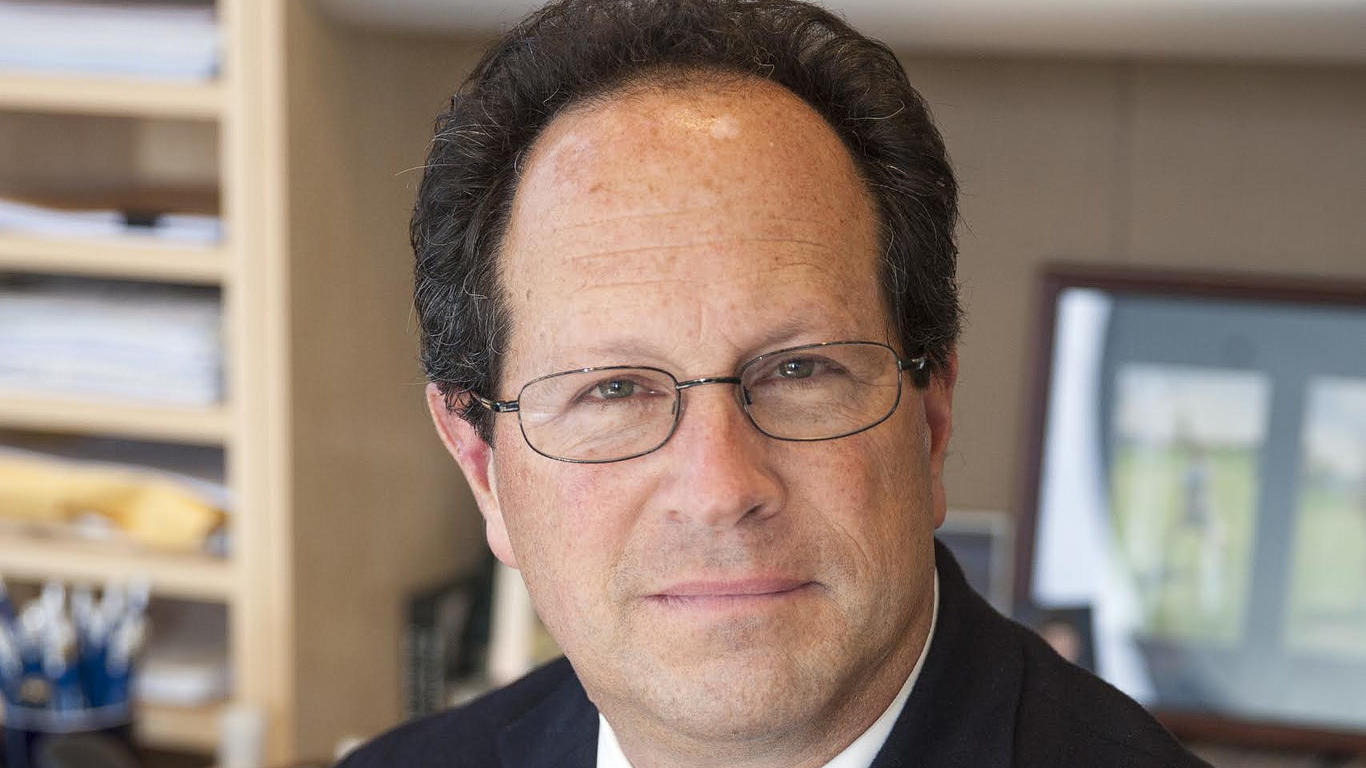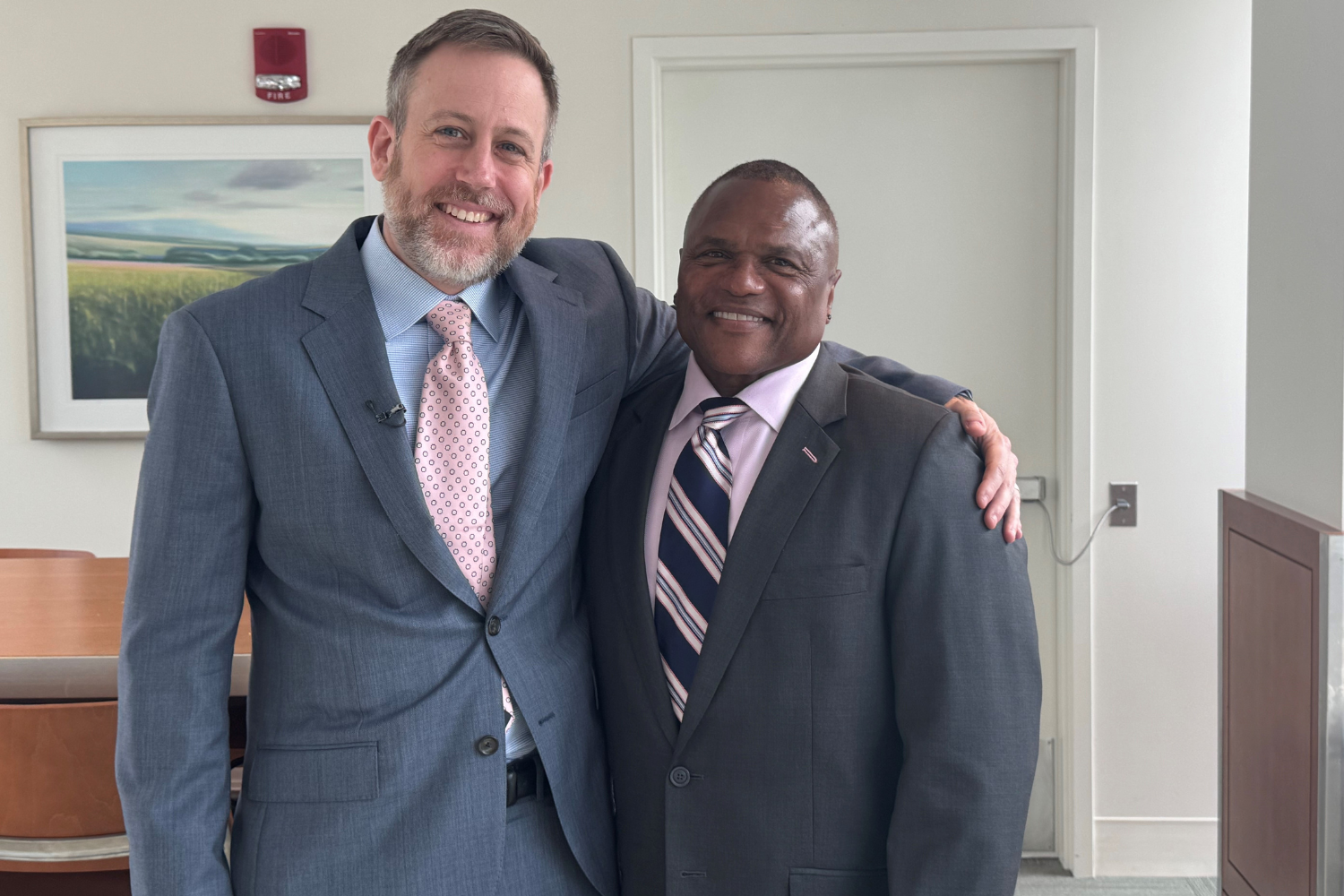By Kathleen Megan, Hartford Courant
The University of Hartford Board of Regents has appointed Gregory S. Woodward, a Midwest college president with roots in West Hartford, as the university’s next president.
Woodward, who will take office July 1, has been president of Carthage College in Kenosha, Wis., since 2012. He will succeed Walter Harrison, who retires June 30 after serving 19 years.
“I am honored and humbled by this new opportunity,” Woodward, 62, said Tuesday morning following his appointment at a board meeting “I am impressed by the wide range of programs offered at the university and believe that this is a unique strength of the institution.”
He added: “The university is well on its way to becoming a leading model for higher education in the 21st century. I am tremendously inspired and energized to work with the full complement of the community to further realize the vast potential of the university.”
Woodward, who will be the university’s sixth president in its 59-year history, was raised in West Hartford, graduating from Hall High School and studying saxophone with Hartford jazz legend Jackie McLean, who taught at the The Hartt School of the University of Hartford. He also took music classes at the Hartt School before enrolling at UConn, where he received a bachelor’s degree in 1977.
The appointment came after a 12-member search committee reviewed applicants for nearly a year. In announcing Woodward’s appointment, University of Hartford Board of Regents Chairwoman Lucille Nickerson said, “Of the many candidates whose credentials were considered, Greg emerged as the clear leader. We began our search by listening carefully to the UHart community about the qualities and experience it felt important to have in the university’s next leader. Greg’s experience and accomplishments align with an ambitious vision for this university.”
In a phone conversation Tuesday afternoon, Woodward, who hadn’t been back to Connecticut for decades until coming to Hartford for interviews, said that returning to the state was not something he would ever have predicted. “It’s a nice value-added kind of idea … It’s a great feeling I drove by my old house during one of my interview days. Three miles away, near Bishops Corner.”
Woodward was playing alto sax for the Hall jazz band when he called McLean to see if he could get a referral for private lessons. “I knew how famous he was and how great he was and I said, ‘Can you give me the name of somebody?’ And he says: ‘How about studying with me?’ I picked my jaw up off the floor and went to his house once a week and had lessons. It was one of the highlights of my life.”
“He’d show up in his dashiki every time and kind of was playing and practicing and writing. It was one of those kinds of mentorships that you would wish for everybody in their lives.”
Woodward said he was “immediately curious” when he heard about the presidential opening at UHart. “When I started to look I was struck by what I considered to be an incredibly forward-looking university.
“There is an elementary school, a high school on campus, there’s a two-year college … There’s an undergraduate institution of 5,000 students. There’s a master’s and doctoral program with almost 1,600 students and then there’s online and blended pedagogies for people that want to have kind of an education from a different stance,” Woodward said. “That’s an amazing mix and just so smart and sturdy … for the long-term stability and future of an institution. In this crazy world of higher ed where we don’t know quite what’s happening, that’s what really got me excited.”
Woodward earned a doctor of musical arts from Cornell University, where he was a student of Pulitzer Prize-winning Czechoslovakian composer Karel Husa and he earned a master’s from Ithaca College. He was a fellow in higher education at Harvard University‘s Graduate School of Education and is a graduate of Harvard’s Seminar for New Presidents.
A composer, musician, athlete, and scholar, Woodward has spent nearly four decades working in higher education. Under his leadership, Carthage, a small liberal arts college with 2,600 students, recently completed a 10-year strategic plan, “Carthage in the Year 2025,” according to a statement from the University of Hartford. He also created Carthage’s first president’s task force on diversity.
While at Carthage, he has focused on the student experience, according to a UHart statement, creating a Center for Student Success and expanding scholarship opportunities, particularly for underrepresented groups and students who encounter unexpected financial needs.
He also improved the retention rate for first-year students, raised graduation rates and carried out enrollment efforts that increased the percentage of first-year students of color by 75 percent.
Before Carthage, Woodward rose through the academic administrative ranks at Ithaca College, where he served as dean of the school of music.
Woodward said that one of his first aims at UHart will be to improve the graduation rate. The four-year graduation rate at the university is 49 percent, while the six-year rate is 57 percent.
“I”m a fanatic about enrollment. I’m a fanatic about student success,” Woodward said. ”
Woodward said he wants the university to be a major part of the region and Hartford.
“I take the idea that the University of Hartford has the name Hartford in it very seriously,” he said.
And how will his music background contribute to his role as president?
“You don’t ever go on stage and deliver a B plus performance, right? I mean you would get booed off the stage. It’s A plus or nothing,” he said. “And so there’s a kind of a sense of doing high end professional work all the time built into musicians as well. So that’s a positive thing.”
He said he’s also like to play his sax in the pep band.



